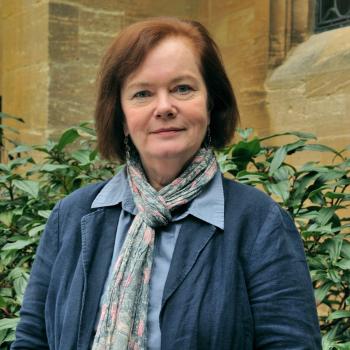
Africa | Childrens Work And Time-use | Well-being
Jo Boyden is Professor Emeritus of International Development. She joined ODID in 1999 as a Senior Research Officer at the Refugee Studies Centre and was Director of Young Lives from 2005 to 2019.
She is a social anthropologist with a first degree from University College London and a PhD from the London School of Economics and Political Science. Prior to taking up her post at ODID, she was a social development consultant and specialised in advising and training in applied research and the design, monitoring and evaluation of policies and programmes supporting children and youth confronting adversity. She worked with a wide range of governmental, multilateral, and national and international non-governmental agencies across Latin America, South and South-east Asia and East Africa.
Jo’s doctoral research examined processes of economic and social transformation in a rural district in the Peruvian Andes and focused on intra- household gender dynamics and rising inter-household disparities associated with the privatisation of land and other communal assets. Her work since has centred on boys’ and girls’ development in different socio-cultural and economic contexts, with an emphasis on their experiences of armed conflict, forced migration and poverty, and their agency, vulnerability, and resilience in challenging circumstances.
With Young Lives colleagues she has explored the relationship between children’s work and education, highlighting the role of individual and familial aspirations, gender, and household wealth in shaping decisions about boys’ and girls’ time use. Most recently she collaborated with Gina Crivello and other Young Lives colleagues on the Methodological Lessons and Learning project. Funded by the Economic Social and Research Council (ESRC), its aim was to generate shared learning, strengthen capacity, and contribute to improving effectiveness in the conduct of comparative, mixed-methods, longitudinal research in low and middle-income countries.

Jo Boyden is Professor Emeritus of International Development. She joined ODID in 1999 as a Senior Research Officer at the Refugee Studies Centre and was Director of Young Lives from 2005 to 2019.
She is a social anthropologist with a first degree from University College London and a PhD from the London School of Economics and Political Science. Prior to taking up her post at ODID, she was a social development consultant and specialised in advising and training in applied research and the design, monitoring and evaluation of policies and programmes supporting children and youth confronting adversity. She worked with a wide range of governmental, multilateral, and national and international non-governmental agencies across Latin America, South and South-east Asia and East Africa.
Jo’s doctoral research examined processes of economic and social transformation in a rural district in the Peruvian Andes and focused on intra- household gender dynamics and rising inter-household disparities associated with the privatisation of land and other communal assets. Her work since has centred on boys’ and girls’ development in different socio-cultural and economic contexts, with an emphasis on their experiences of armed conflict, forced migration and poverty, and their agency, vulnerability, and resilience in challenging circumstances.
With Young Lives colleagues she has explored the relationship between children’s work and education, highlighting the role of individual and familial aspirations, gender, and household wealth in shaping decisions about boys’ and girls’ time use. Most recently she collaborated with Gina Crivello and other Young Lives colleagues on the Methodological Lessons and Learning project. Funded by the Economic Social and Research Council (ESRC), its aim was to generate shared learning, strengthen capacity, and contribute to improving effectiveness in the conduct of comparative, mixed-methods, longitudinal research in low and middle-income countries.
Africa | Childrens Work And Time-use | Well-being

